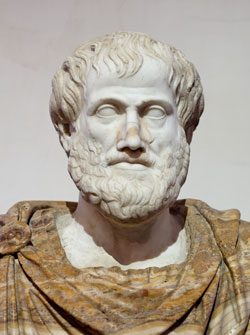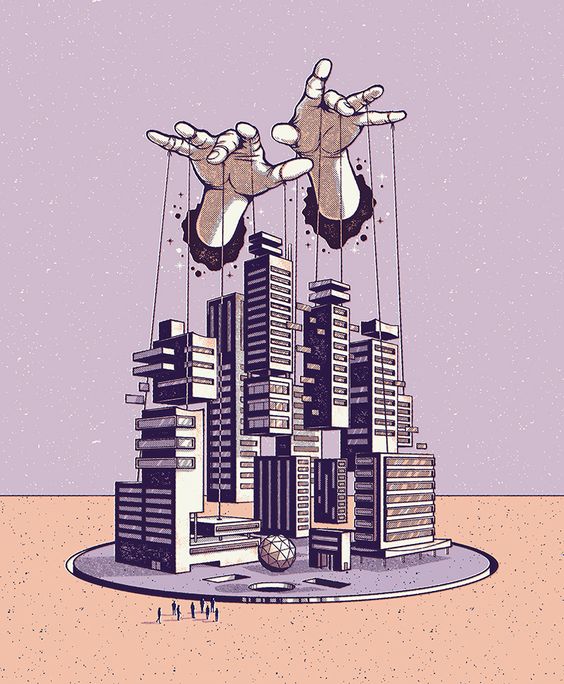Quick. When I say the word “economist,” what comes to mind? Fearless truth-teller? Sage wise man? Someone whose deep understanding of the complex web of billions upon billions of daily interactions in the sphere of human activity enables them to predict the outcome of those interactions years in advance with near certainty?
…Or do you think of Paul Krugman?
Be honest now. It’s Krugman, isn’t it?
Why is that? How can it be that a profession that likes to call itself a science (even a dismal science) and whose practitioners are entrusted with steering the economies of entire nations can be so consistently, horribly, laughably wrong? (Case in point: Paul Krugman)
 Why is it that these piercing intellects praised Bubbles Greenspan as “the Maestro” for saving the US from the consequences of the dot-com bubble by blowing an even more destructive housing bubble?
Why is it that these piercing intellects praised Bubbles Greenspan as “the Maestro” for saving the US from the consequences of the dot-com bubble by blowing an even more destructive housing bubble?
Why is that these wise men consistently laughed at the only people who dared to point out that the housing bubble was in fact a bubble?
Why is it that they now sing the praises of negative interest rates and other “innovations” that were once thought of as literally impossible?
How can the leading lights of the field be so stupendously wrong about the economic fallout of Brexit or the Trump election or a million other things and still be taken seriously by anyone?
Ask an economist these questions and you’ll get any number of excuses as to why economic calculations are not quite as accurate as a physics equation, or as predictable as a chemical reaction. It turns out economics is not that kind of science, after all. I mean, what are you looking for? Certainty?
Some of the more thoughtful economists will even offer compelling counter-analogies. In his 2013 op-ed, “Is Economics a Science?” (faux) Nobel laureate Robert J. Shiller concedes that since macroeconomists are primarily concerned with policies and their outcomes, not raw data, it is more accurate to think of them as engineers rather than scientists.
“My belief is that economics is somewhat more vulnerable than the physical sciences to models whose validity will never be clear, because the necessity for approximation is much stronger than in the physical sciences, especially given that the models describe people rather than magnetic resonances or fundamental particles. People can just change their minds and behave completely differently. They even have neuroses and identity problems, complex phenomena that the field of behavioral economics is finding relevant to understanding economic outcomes.”
 The irony is that, although Shiller almost certainly doesn’t realize it, he has just pinpointed the fundamental underlying flaw in the so-called “science” of economics. It is not just that there are some equations here and there that need refining. It is not an incomplete theorem that is getting closer and closer to the truth with every approximation. The field of economics is in fact built on an entirely false premise and thus cannot yield anything but results that are only coincidentally related to reality.
The irony is that, although Shiller almost certainly doesn’t realize it, he has just pinpointed the fundamental underlying flaw in the so-called “science” of economics. It is not just that there are some equations here and there that need refining. It is not an incomplete theorem that is getting closer and closer to the truth with every approximation. The field of economics is in fact built on an entirely false premise and thus cannot yield anything but results that are only coincidentally related to reality.
The false premise is to be found at the very root of the word itself: economics. The word “economics” is derived from the Greek οἰκονομία, meaning “household management.” The word was employed by Aristotle to analogize the management of a household to the management of a city-state. It is now employed by macroeconomists to describe the management of entire nations or of the globe itself.
But as F.A. Hayek points out in his landmark opus, Law, Legislation, and Liberty, this analogy is not merely wrong, it fundamentally obscures an important truth about the sphere of human activity that it purports to describe:
“An economy, in the strict sense of the word in which a household, a farm, or an enterprise can be called economies, consists of a complex of activities by which a given set of means is allocated in accordance with a unitary plan among the competing ends according to their relative importance. The market order serves no such single order of ends. What is commonly called a social or national economy is in this sense not a single economy but a network of many interlaced economies. Its order shares, as we shall see, with the order of an economy proper some formal characteristics but not the most important one: its activities are not governed by a single scale or hierarchy of ends.”
Make no mistake: This quibble is not semantic. Although “economics” describes the study of resource allocation in line with a unitary plan to satisfy a single scale of value, that is manifestly not what “economists” are trying to describe. As Hayek explains, this is in fact a chief source of error in the study of economics itself:
“The belief that the economic activities of the individual members of society are or ought to be part of one economy in the strict sense of this term, and that what is commonly described as the economy of a country or a society ought to be ordered and judged by the same criteria as an economy proper, is a chief source of error in this field. But, whenever we speak of the economy of a country, or of the world, we are employing a term which suggests that these systems ought to be run on socialist lines and directed according to a single plan so as to serve a unitary system of ends.”
 Thus, baked into the “economics” pie is the notion that the economist’s job is, as Shiller concedes, to fine-tune the unitary economic plan of a government or central planning council in the service of a single set of ends. Any guess whose ends these economists end up serving? Hint: it’s not yours.
Thus, baked into the “economics” pie is the notion that the economist’s job is, as Shiller concedes, to fine-tune the unitary economic plan of a government or central planning council in the service of a single set of ends. Any guess whose ends these economists end up serving? Hint: it’s not yours.
This explains why classical economists concerned themselves with the ultimate form of “household management,” i.e. the creation of a centrally planned national or even global “economy.” As Ludwig von Mises elaborates in Human Action:
“The question which preoccupied the economists was whether a tailor could be supplied with bread and shoes if there was no government decree compelling the baker and the shoemaker to provide for his needs. The first thought was that authoritarian interference is required to make every specialist serve his fellow citizens. The economists were taken aback when they discovered that no such compulsion is needed. In contrasting productivity and profitability, self-interest and public welfare, selfishness and altruism, the economists implicitly referred to the image of a socialist system.
“Their astonishment at the ‘automatic,’ as it were, steering of the market system was precisely due to the fact that they realized that an “anarchic” state of production results in supplying people better than the orders of a centralized omnipotent government. The idea of socialism — a system of the division of labor entirely controlled and managed by a planning authority — did not originate in the heads of utopian reformers. These utopians aimed rather at the autarkic coexistence of small self-sufficient bodies; take, for instance, Fourier‘s phalanstère. The radicalism of the reformers turned toward socialism when they took the image of an economy managed by a national government or a world authority, implied in the theories of the economists, as a model for their new order.”
Indeed, the dream of the economists has always been to be the engineers of the “new order” in the service of their natural employers, the central planners. This is why the conception of technocracy was so immediately appealing to the very overlap of economists and engineers that Shiller identifies as the true heart of economics.
This also explains why economists are doomed to fail in their attempts to construct the perfect set of policies for directing the national economy. There is no such thing as a unitary plan to balance out the needs of any group of humans, let alone entire nations. Worse yet for the would-be managers of human activity, even the idea of a “best fit” plan or some utilitarian “greater good” policy package for the direction of resource allocation is a pipe dream. Human values are incommensurable, to say nothing of material wants, needs and desires. The calculation of the ideal allocation of resources to meet all of those needs, fulfill those desires, and maintain those values is not just impossible but nonsensical.
As author Sheldon Richman explains:
“While each person demonstrates his or her (changeable) ranking of ends through the choices made and actions taken, there is no social ranking of all the ends valued by all the individuals in the society. My desire, say, for a pizza dinner can’t be placed on a social value scale in order to see what it takes precedence over and what takes precedence over it. That simply makes no sense. Society is not an organism with a preference scale, and preferences cannot be compared interpersonally, because for each person preferences are subjective and ordinal.”
 So if not economics, then what? How do we describe the study of the order that undeniably arises from the sum total of human activities? The tailor is supplied with bread and shoes, after all, and he supplies the baker and shoemaker with clothes. How do we understand this nearly unfathomably complex web of activities that bind humanity together if not through “economics?”
So if not economics, then what? How do we describe the study of the order that undeniably arises from the sum total of human activities? The tailor is supplied with bread and shoes, after all, and he supplies the baker and shoemaker with clothes. How do we understand this nearly unfathomably complex web of activities that bind humanity together if not through “economics?”
Never fear, there is a word for that! The word is “catallactics,” which derives from the Greek verb καταλλάσσω, which means not only “to exchange” but also “to reconcile” in the sense of admission to a community, or changing from enemy to friend. The word in itself speaks of the profound connection that is possible from the act of mutually beneficial exchange, and changes the inflection entirely from the coercive management of human cattle for the benefit of a unitary plan (“economics”) to the creation of a community based on exchange and friendship (“catallactics”).
As Mises notes:
“The fundamental facts that brought about cooperation, society, and civilization and transformed the animal man into a human being are the facts that work performed under the division of labor is more productive than isolated work and that man’s reason is capable of recognizing this truth. But for these facts men would have forever remained deadly foes of one another, irreconcilable rivals in their endeavors to secure a portion of the scarce supply of means of sustenance provided by nature. Each man would have been forced to view all other men as his enemies; his craving for the satisfaction of his own appetites would have brought him into an implacable conflict with all his neighbors. No sympathy could possibly develop under such a state of affairs.”
As opposed to the war of all against all necessitated by the economic (mis)conception of the world is the cooperation implicit in the catallactic understanding of human action. Cooperation and exchange are the very basis of human civilization. Economy and central planning is its antithesis.
 The role of the catallactician, then, is very different than that of the economist. The catallactician describes the order of human activity, quantifies and examines it. But directing that order? Managing it? Controlling it? Coercing its participants into a unitary plan of action? This is not even conceivable to the catallactician.
The role of the catallactician, then, is very different than that of the economist. The catallactician describes the order of human activity, quantifies and examines it. But directing that order? Managing it? Controlling it? Coercing its participants into a unitary plan of action? This is not even conceivable to the catallactician.
So, dear reader, you have (very likely) just learned a new concept and a new word. It might be beneficial to ask why you have spent your whole life learning about economics, listening to the pronouncements of economists and worrying about the functioning of the economy rather than learning about catallactics, listening to the descriptions of catallacticians and marveling at the functioning of the catallaxy. Why has this word been occluded from your understanding? Why has it never appeared in the newspaper or on the lips of any of your school teachers during your 12,000 hours of government-sponsored indoctrination? Is there a deeper lesson about the world and the way that it works that has been deliberately kept from you? And if so, to whose benefit does this skewing of your consciousness redound?
I’ll leave you to ponder the significance of these questions on your own time. Meanwhile, it’s time to start examining, describing and participating in the catallaxy.





Great article. It is nice to have a word for a new branch of studying these interactions. I have always argued that the inherent problems with liberal-democratic theory (Locke, Rousseau etc) were axiomatic. We never were individuals in a state of nature that needed to come together for protection. We evolved into humans as a communal species. Our strength lies in our community and working together. A lone man on the plains would often be prey as a group every creature runs from us. So this not only has a powerful effect on economics but our very system of government.
except human behavior isn’t consistent with the principles of evopsych expressed in pop science podcasts. Neither are Locke’s theories conceived of as the distillation of social, governmental and legal natural phenomenon existing to serve man on a person to person basis.
For the most part this article tells me you have a really bad reading routine. The links you support this article on are atrocious. congrakrugman.com?
I mean what physics are you comparing it too? Physic and chemistry mainly predict and study presently occurring phenomenon. Economics looks toward the future. Lots of people did predict the housing bubble. Some of them were national in prominence. I remember reading an outdated finance textbook that predicted it the year before it happened after it had happened. How absurd is it to talk about the economic implications of Brexit and Trump as evidence against listening to economists while we don’t even know them ourselves yet? Just got an axe to grind?
oh shit just got it. Hayek -> Austrian economics -> bogus, usually self-contradictory philosophy aimed at the attainment of wealth in the fewest possible hands (and spreading the word liberty over every piece of parchment in sight) built on shoddy maxims and silly aphorisms and one of the things Keynes and others were able to so thoroughly destroy during the post-depression era.
This dumbness can’t be quantified. When blah blah x person talks about increasing food stamps to unlock a multiplier effect in order to maximize aggregate demand or if they suggest the implementation of a regional cooperative infrastructure bank they’re committing a grave folly because some people don’t like to eat and some people don’t like electricity so they’ll only be arguing for ends that some people don’t want, probably at the behest of their evil paymasters (Jews) who don’t trust the Ley Lines and innate power of Lebensraum which guide the Invisible Hand of the Free Market (unreal thing) for realizing our National Destiny. They’re not in it for you, they hate you, common man. did I mention Brexit was bad and evil? I don’t want to hear anymore about increased liquidity or international tax agreements that jeopardize my personal economic plan, to divest working class people of their worldly goods and autonomy because what I read in the Fountainhead tells me that I was born to be a god-king and that those ungrateful ruffians are going to screw that up for me with their so-called *angry scare quotes* so-called social security, family planning services and free-willed, legally emancipated children.
The real reason you’re so afraid and immeserated by popular economists is because they’ve done really well at learning how to kick the business cycles ass a little bit better after the final destruction of Austrian liquidationist thinking in the 1930s.
If “Economics” is scientific and empiric, then how come that if you place three “Economists” in a room for an hour they’ll come out with four “theories”?
We cynically sneer at some of the unsustainable “theories” promulgated by New-Age-Religionists (which are just a feel-good theft of comfortable snatches of more serious philosophies that may lead to a deeper understanding of one’s self and one’s environment instead of the whole, as is done in the Pharmaceutical Industry), and yet we bow in fawning obeisance to these liars and manipulators of Governments. Society suffers while the useful idiots pat themselves on the back.
The World’s gone f@@king insane, as John Lennon so wisely noted.